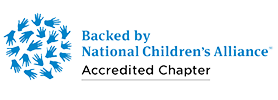The Annual Northeast Texas Crimes Against Children Conference is scheduled for July 24th and 25th at Region 8 ESC. For more information or to register, please visit the conference page.
Become an EMDR Therapist
This is for the Complete EMDR Therapist Training, which consists of two 3-day sections and 10 hours of online group consultation. It is an EMDRIA-approved program and upon completion you are a fully trained EMDR therapist. This is the pathway to becoming certified in EMDR. This training is for counseling interns and licensed mental health professionals.
In addition to the two weekends, which are attended in person, each trainee must attend five 2-hour group consultations. These are done by video conferencing between and after the training weekends. Upon completion, this training provides 40 continuing education hours for Texas Only LPC, MFT, and Social Workers.
Pricing
$1,299.00 - $1,499.00
Location
Northeast Texas Child Advocacy Center
5920 N State Hwy 37, Winnsboro, TX 75494
Dates and Times
July 11, 12, 13, 2025 (First Weekend) - 9:00 am to 5:30 pm (CDT)
August 1, 2, 3, 2025 (Second Weekend) - 9:00 am to 5:30 pm (CDT)
Register
Training for our Partners in Law Enforcement, Child Protective Services, Victim Advocates and area CACs
With ever-changing protocols, education, and tactics needed for this difficult line of work, it is the goal of NETCAC to bring valuable, up-to-date training to professionals in law enforcement, child protective services, community response, mental health, and prosecutors to northeast Texas. We seek out experts in the fields of investigation, prosecution, and the legal community who provide the most current protocols, best practices, legal updates, and practical experience and offer them to our partner agencies several times per year. Most of our training events offer CEUs for those who require them and are conducted by leaders in their fields.
Some of our regular trainings include:
- Multidisciplinary Team (MDT) Orientation and Training
- Sexual Assault Family Violence Investigator Course (SAFVIC)
- Legal Updates (offered every two years)
- Annual 2-Day East Texas Crimes Against Children Conference
Most of our trainings provide Continuing Education credits for TCOLE licensing and certifications (self-reported).
If there is a training topic your agency needs, please contact us. We will work to coordinate with facilitators to provide a training specific to your agency needs at a nearby location. Contact Estera Trifan for more information.
RESOURCES FOR PARTNER agencies
VICARIOUS TRAUMA, secondary traumatic stress & BURNOUT
ON-DEMAND COURSES
Burnout, Compassion Fatigue and Vicarious Trauma from Confluence Health - 40 minutes (via YouTube)
THE NATIONAL CHILD TRAUMATIC STRESS NETWORK
No-cost registration is required.
Organzational Secondary Traumatic Stress








